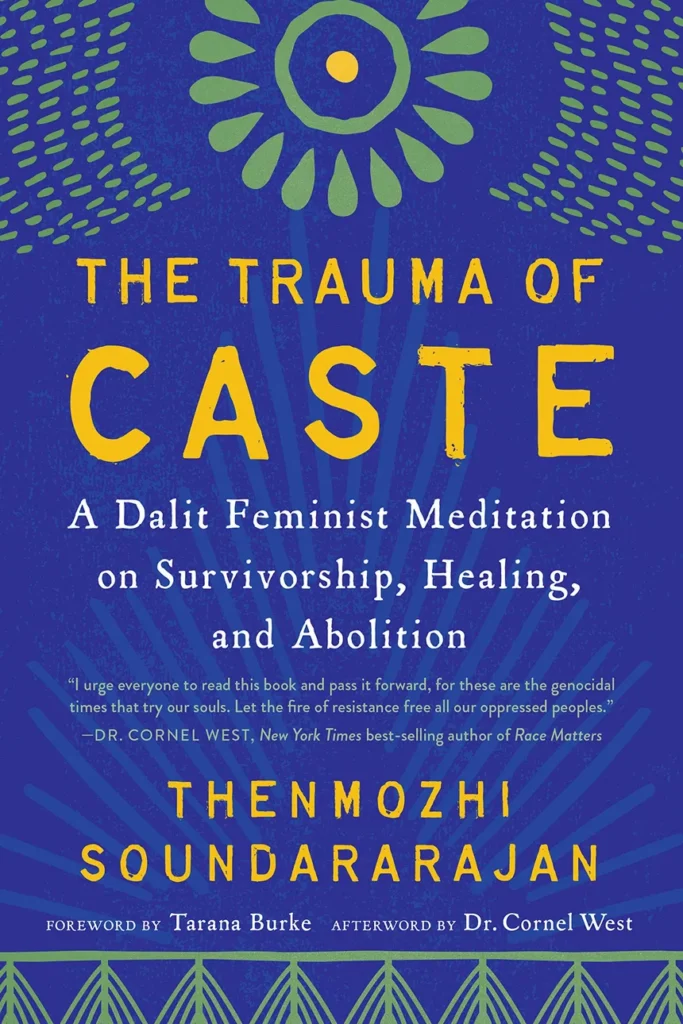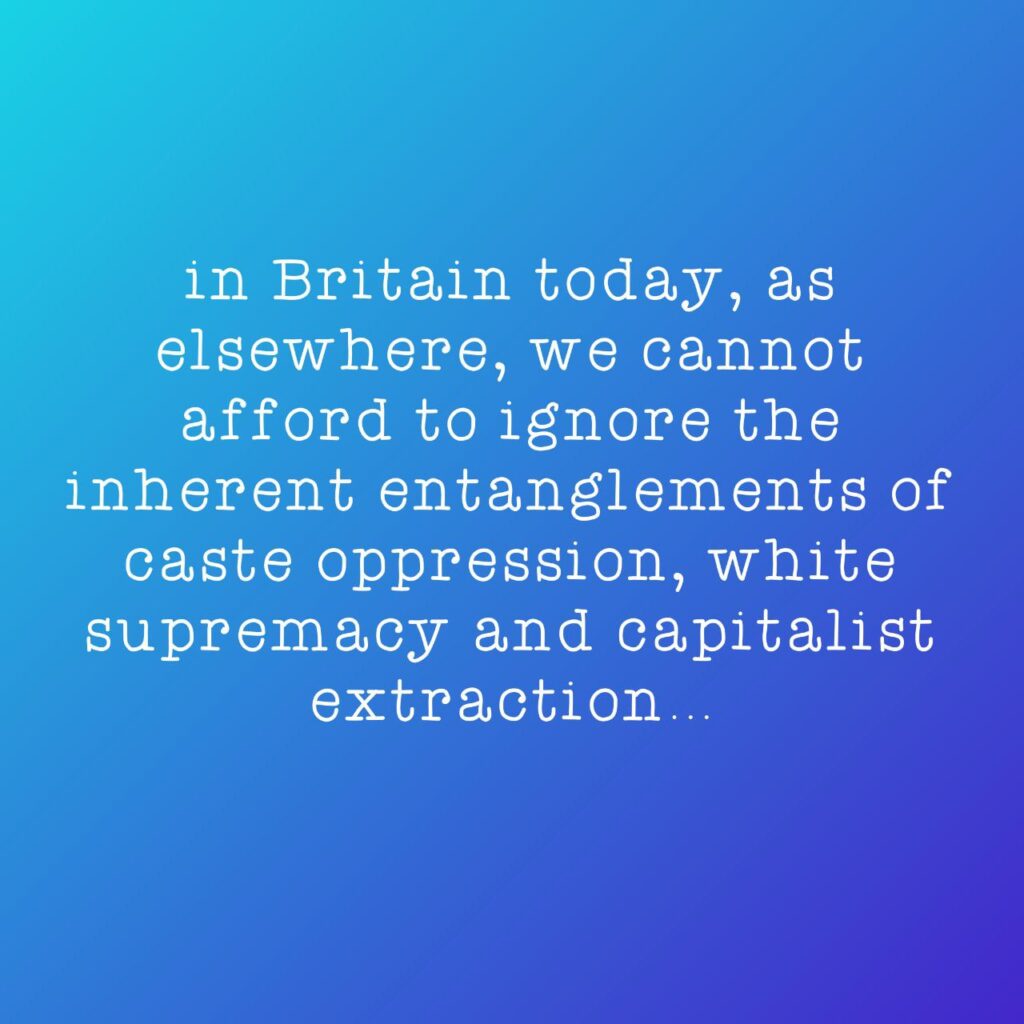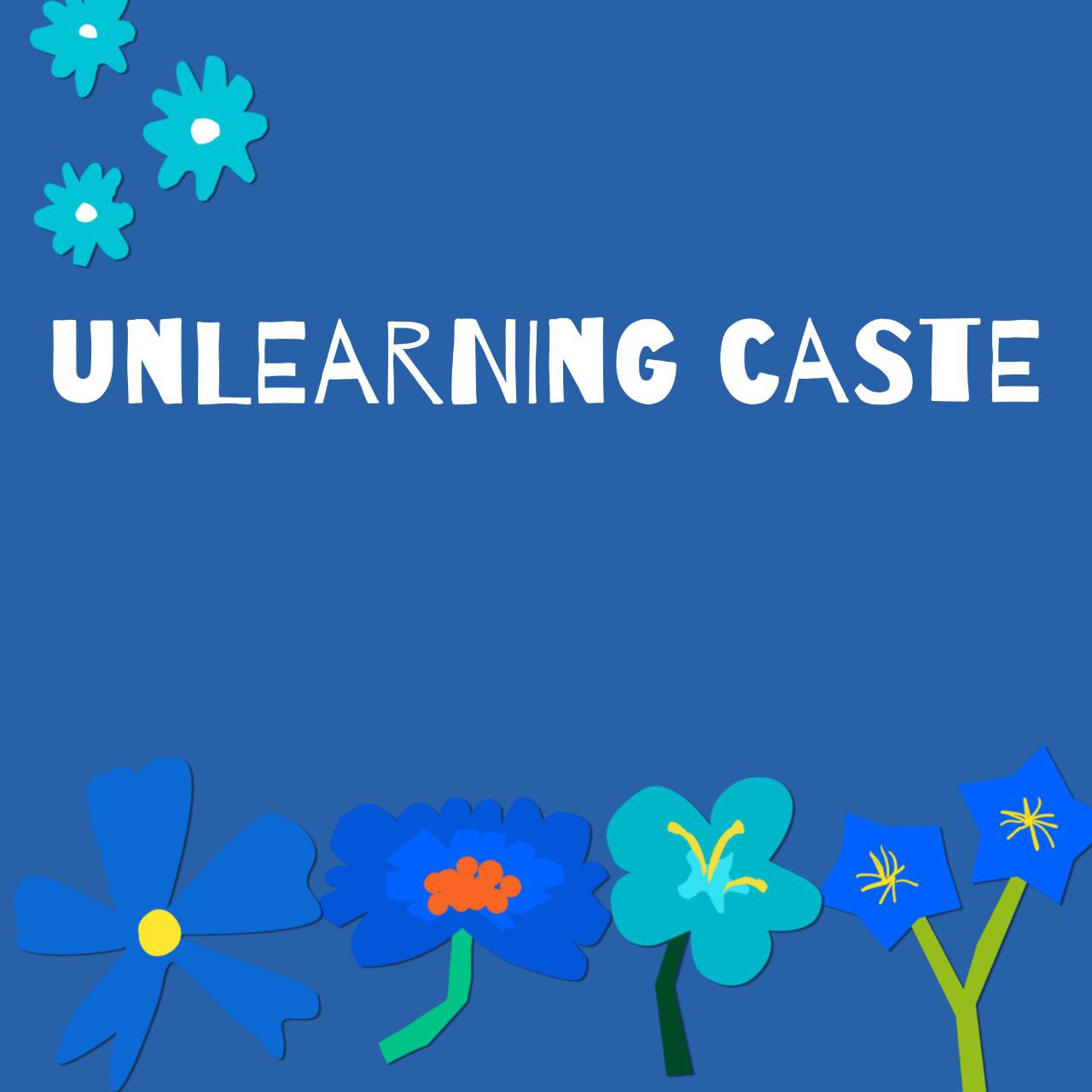Unlearning Caste: An Embodied Listening and Reading Ritual is a free and open gathering for unlearning caste through an embodied listening and reading of anticaste texts. By ‘ritual’ here, we mean not inaccessible and oppressive hierarchy that reproduces violence as practised in various religions, not least Hinduism. Rather, we intend to reclaim ritual to understand it as the routine or repeated showing up for relations we care about, want to make, and sustain. This includes challenging all forms of hierarchy and creation of expertise, and all participants are invited to facilitate, lead, comment, and shape together the format of these rituals. We currently host these rituals online using The Unsettling Witch infrastructures, but remain independent and self-organised.
The only requirement to join us is to come with an orientation of humble listening. What does this mean? In our settler schools and universities we are taught to read to judge and form opinions. Here we shall read instead by suspending judgement and the promise of easy solutions. Over time, this will enable and create capacities in us to truly listen. To Indigenous-Adivasi and Dalit experiences, and to the responses invoked in our own bodies.
This embodied practice of listening and reading is rooted in the work of Dalit feminist activist Thenmozhi Soundararajan, who challenges the centuries-old intellectualisation of caste. Intellectualisation of caste has created distance from its horror and compartmentalised its impact on our bodies, societies, and the Earth. Through embodied listening and reading, we show a commitment to heal by seeking to undo our distancing from and compartmentalisation of the traumas of caste apartheid.
Our rituals are inspired by Dalit articulations of caste apartheid and anticaste struggles over several centuries and millennia. The word “Dalit” is a political positioning and is used as one term of self-identification by those who are caste-oppressed. It was popularised by Dalit educator and Marathi anticaste activist Jotirao Govindrao Phule in the late 1880s.
WHEN, WHERE, HOW?
We meet every alternate Saturday online. To receive more details about the next meetings, please sign up here. In case you signed up and did not receive an email before the Saturday, please check your Spam folders.
Each ritual lasts 90 minutes. We begin with a grounding practice to come into our bodies and bring awareness to our connection with the lands and places we inhabit. We then set intentions for the ritual, repeating our shared commitments for unlearning caste. Then we listen to and read the chosen anticaste text together, live. We read for 15 minutes, share what comes up for us for 15 minutes, and then repeat this cycle. While listening, reading, and sharing, we are encouraged to pay attention not just to the words but also what arises in our bodies—physically, emotionally; so that we may begin to challenge, unlearn, and dismantle caste not just in an intellectual but importantly, in a personal and embodied way.
Each ritual lasts 90 minutes. We begin with a grounding practice to come into our bodies and bring awareness to our connection with the lands and places we inhabit. We then set intentions for the ritual, repeating our shared commitments for unlearning caste. Then we listen to and read the chosen anticaste text together, live. We read for 15 minutes, share what comes up for us for 15 minutes, and then repeat this cycle. While listening, reading, and sharing, we are encouraged to pay attention not just to the words but also what arises in our bodies—physically, emotionally; so that we may begin to challenge, unlearn, and dismantle caste not just in an intellectual but importantly, in a personal and embodied way.
NOW LISTENING AND READING


CRITICAL CASTE AND TECHNOLOGY STUDIES: an annotated syllabus
created by Dr. Murali Shanmugavelan
Critical Caste Studies has been conceptualised by Dalit scholar Dr. Gajendran Ayyathurai as a framework to provide a multilayered critique of all forms of caste as casteism, and centre the vernacular practices of castelessness amongst marginalised communities. Read more about it here.

